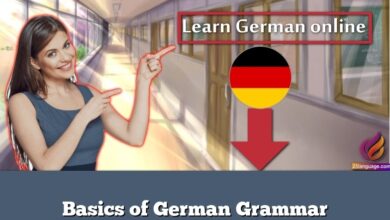Past Tense Of mögen And möchten In German

mögen And möchten In German.The past tense of these two verb forms.
Remember that möchten is not a real infinitive but the Konjunktiv II (conditional) of the verb mögen.
While ich mag means “I like”, ich möchte means “I would like” or “I want” in a polite way.
So, the main meaning of mögen is “to like“, hence the past of mögen → ich mochte (without Umlaut dots!) means “I liked”.
Möchten does not have an “own” past tense because it is only a verb form of mögen.
We use möchten when we want to order/ask for something in a polite way or when we express a wish. Thus, talking about an order/request or wish in past tense, the politeness obviously does not matter anymore.
This is why the past tense of ich möchte is ich wollte.
It is just the same as in English when we change the expression “I would like a tea” to past tense: “I wanted (or ordered) a tea.”
Complete Conjugation
In the following table you can observe the conjugation of present and past tense of mögen (to like) in the left column.
On the right side you can see ich möchte and ich will whose basic meaning is the same (to want), thus they have only one past tense form:

In Perfekt tense, remember that the modal verbs have 2 different forms depending on if used
- without infinitive (Ich habe das nicht gewollt).
- Coursewith infinitive (Ich habe das machen wollen).
German Modal Verbs: Past Tense Conjugation
we will learn the imperfect or simple past conjugation forms the of the six German modal verbs. We will also review how to use modal verbs in a sentence.Definition
Consider these English sentences:
- I wanted to go to the park, but I had to do chores.
- The policeman was allowed to enter the building.
- When we were young, we liked to play Atari.
These bold words are modal verbs in English.
Modal verbs convey an attitude or explain how you feel about an action in German. They are often used with a second verb, but can be used alone when appropriate.
The Six Modal Verbs
German has six modal verbs:
| Verb | Pronunciation | Translation |
|---|---|---|
| dürfen | DUHR-fin | to be allowed, have to |
| können | KEHR-nin | can, to be able |
| mögen | MUHR-gin | to like |
| müssen | MUH-sin | must, to have to |
| sollen | ZOL-in | should, to be supposed to |
| wollen | VOL-in | to want to |
Present Tense Forms
Here is a quick review of the present tense conjugations:
| Pronoun | dürfen | können | mögen | müssen | sollen | wollen |
|---|---|---|---|---|---|---|
| ich | darf‘ | kann | mag | muss | soll | will |
| du | darfst | kannst | magst | musst | sollst | willst |
| er/sie/es | darf‘ | kann | mag | muss | sollen | wollen |
| wir | dürfen | können | mögen | müssen | sollen | wollen |
| ihr | dürft | könnt | mögt | müsst | sollt | wollt |
| sie | dürfen | können | mögen | müssen | sollen | wollen |
| Sie | dürfen | können | mögen | müssen | sollen | wollen |
These verbs are irregular. The 3rd person singular does not have the regular -t ending, and the three singular forms do not take the umlaut.
Usage
The modal verbs are conjugated in regular verb position, and the second verb (if one is used) comes at the end of the sentence in the infinitive form.
Examples
- Ich darf Deutschland besuchen. (I am allowed to visit Germany.)
- Ich kann Deutschland besuchen. (I can visit Germany.)
- Ich mag Deutschland besuchen. (I like to visit Germany.)
- Ich muss Deutschland besuchen. (I must visit Germany.)
- Ich soll Deutschland besuchen. (I should visit Germany.)
- Ich will Deutschland besuchen. (I want to visit Germany.)
Imperfect (Simple Past) Forms
The modals verbs are expressed in the past tense through their imperfect (simple past) forms:
| Pronoun | dürfen | können | mögen | müssen | sollen | wollen |
|---|---|---|---|---|---|---|
| ich | durfte | konnte | mochte | musste | sollte | wollte |
| du | durftest | konntest | mochtest | musstest | solltest | wolltest |
| er/sie/es | durfte | konnte | mochte | musste | sollte | wollte |
| wir | durften | konnten | mochten | mussten | solleten | wollten |
| ihr | durftet | konntet | mochtet | musstet | solltet | wolltet |
| sie | durften | konnten | mochten | mussten | sollten | wollten |
| Sie | durften | konnten | mochten | mussten | sollten | wollten |
The endings are the same throughout the imperfect forms of the modal verbs. Notice that the umlauts disappear completely in the imperfect tense. Notice also that with the verb mögen, the -g- changes to -ch-.
Examples
- Ich durfte Deutschland besuchen. (I was allowed to visit Germany.)
- Ich konnte Deutschland besuchen. (I was able to visit Germany.)
- Ich mochte Deutschland besuchen. (I liked to visit Germany.)
- Ich musste Deutschland besuchen. (I had to visit Germany.)
- Ich sollte Deutschland besuchen. (I was supposed to visit Germany.)
- Ich wollte Deutschland besuchen. (I wanted to visit Germany.)
Summary
The past tense of “Ich möchte (gern) ins Kino (gehen)” is “Ich wollte (gern) ins Kino (gehen)“.




























